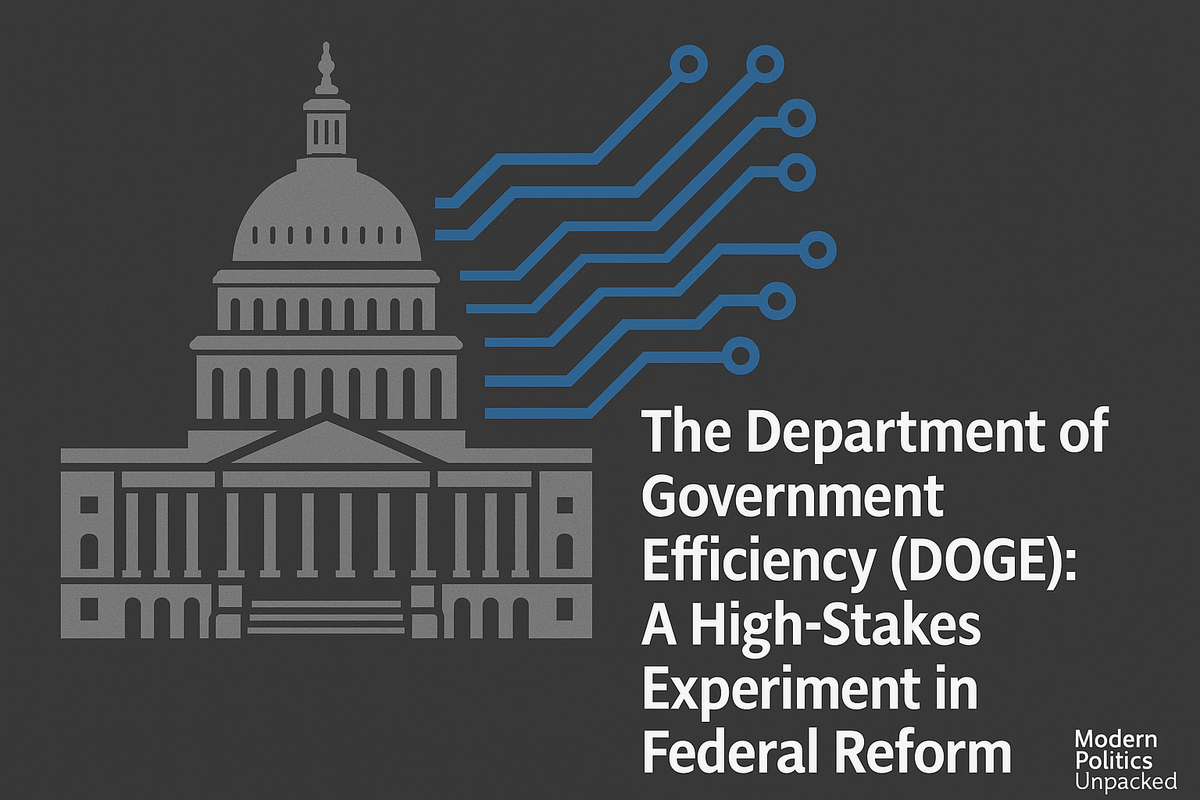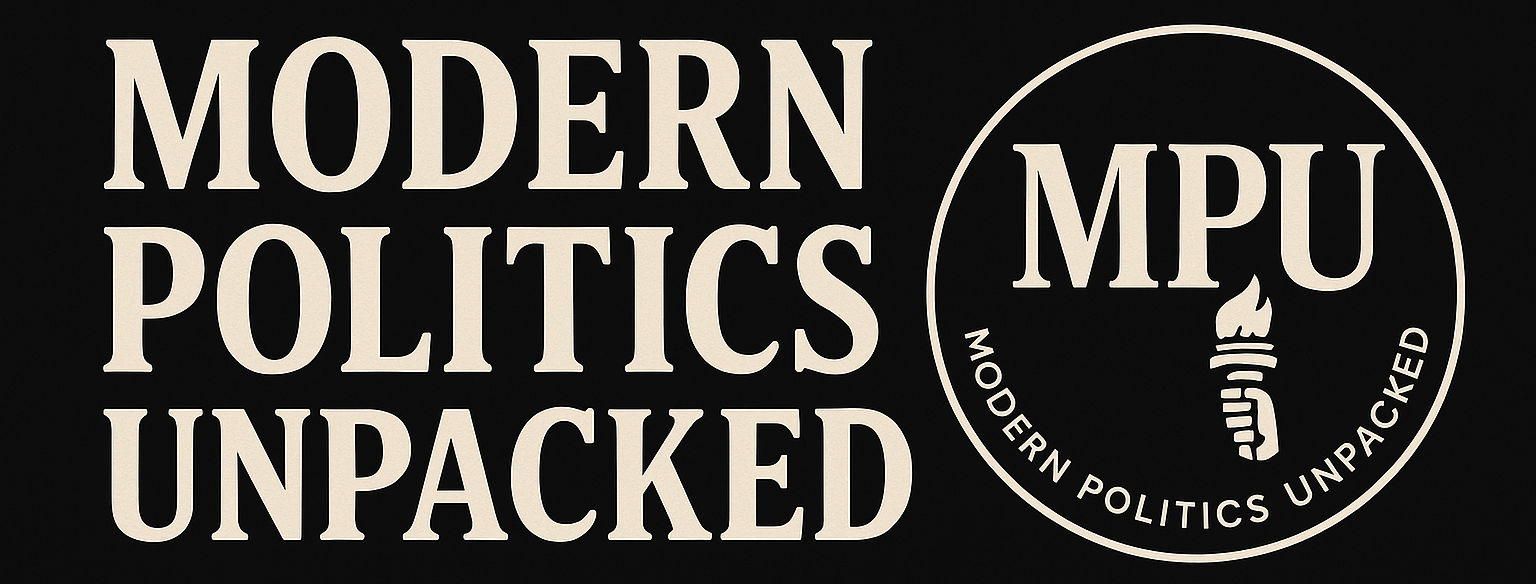The Department of Government Efficiency (DOGE): A High-Stakes Experiment in Federal Reform

In a move that has ignited both praise and controversy, the U.S. government has launched the Department of Government Efficiency (DOGE), an initiative designed to streamline federal bureaucracy and eliminate wasteful spending. Hailed by supporters as a long-overdue administrative overhaul and criticized by opponents as an overreach with limited oversight, DOGE is shaping up to be one of the most consequential experiments in modern public sector management.
Why DOGE Was Created
DOGE emerged in response to mounting bipartisan frustration over the inefficiency of federal agencies. According to government audits, nearly $230 billion in misallocated or untracked federal funds were recorded in 2023 alone. In an era of rising debt and waning public trust, Congress passed the Government Efficiency Act (GEA) with sweeping bipartisan support.
The Act granted DOGE broad powers to audit, consolidate, and reassign tasks across multiple departments. Its scope includes everything from procurement reform to digital modernization.
Challenges and Criticism
DOGE’s mandate is ambitious — and not without significant risk.
Civil liberties groups have warned that the agency’s rapid restructuring efforts may override existing procedural protections. For example, several watchdog organizations are alarmed by DOGE’s ability to unilaterally dissolve internal oversight bodies within other agencies.
As former White House Chief of Staff Anne Regan noted, “This is the boldest efficiency mandate since the Eisenhower years,” highlighting the scope of the structural overhaul.
Additionally, early reports suggest morale issues in agencies subject to DOGE audits. One anonymous EPA official described "a culture of confusion and rushed compliance."
Supporters and Political Reactions
DOGE has found allies among fiscal conservatives and technocratic reformers. Proponents argue that streamlining operations will ultimately improve service delivery and reduce taxpayer burden.
Senator Miguel Thompson (D-CO), a centrist Democrat and co-author of the GEA, defended the initiative:
“We can’t keep patching a broken machine. We need to redesign it.”
Still, progressive legislators and labor unions remain skeptical, particularly about DOGE’s exemption from certain labor review protocols.
Implications for Governance
If successful, DOGE could set a precedent for future bureaucratic innovation — possibly becoming a model for state-level reforms. However, if it falters, critics warn it could erode trust in reform efforts for a generation.
Whether DOGE is remembered as a model of modernization or a cautionary tale depends on how it navigates its first years.
The Unraveling of Global Order: Why Countries Are Turning Away from the UN, WHO, NATO, and the ICC — And What It Means for Our Daily Lives
Published: 2025
The global institutions forged in the aftermath of World War II were built to secure peace, promote cooperation, and enforce justice. Today, many of them are facing a slow and steady retreat by the very nations that once upheld them.
This trend — often dismissed as bureaucratic inertia — is rapidly becoming a defining feature of the 21st-century geopolitical landscape.
From Unity to Fragmentation
The United Nations, World Health Organization (WHO), North Atlantic Treaty Organization (NATO), and the International Criminal Court (ICC) have all been weakened in recent years. The U.S. has either scaled back its funding, challenged institutional mandates, or encouraged unilateral action outside of multilateral frameworks.
Summary Box: The Trend in Context
- Why it matters: These institutions were created to promote peace, health, and justice.
- What’s happening: Budget cuts, national withdrawals, and diminished credibility.
- Impact on Americans: Less coordinated global responses to pandemics, security threats, and humanitarian crises.
Case Study: The U.S. and the WHO
After the COVID-19 pandemic, U.S. involvement in the WHO became a partisan flashpoint. Although the U.S. rejoined under the Biden administration, subsequent proposals in Congress have threatened future cooperation.
"With the World Health Organization losing influence, American global health researchers now face more bureaucratic red tape when working in developing countries — delaying joint efforts in pandemic preparedness and vaccine distribution."
NATO and the New Isolationism
While the U.S. remains a dominant force within NATO, growing anti-interventionist sentiment has led some political figures to question Article 5 — the alliance’s mutual defense clause. Former President Trump’s comments in early 2024 about not protecting NATO members "who don't pay their share" drew global backlash.
Summary Box: NATO in Flux
- Why it matters: NATO is a linchpin of Western security.
- What’s happening: U.S. political leaders are questioning long-standing commitments.
- Impact on Americans: Potential weakening of alliances, more unpredictable foreign entanglements.
Justice Undermined: The ICC and Political Realities
The U.S. has never formally joined the ICC, and recent moves by other major powers to ignore its warrants (e.g., regarding war crimes in Ukraine) have undermined the court’s legitimacy. This weakens global enforcement mechanisms and emboldens autocratic regimes.
Domestic Consequences of Global Retreat
What happens abroad doesn’t stay abroad. These institutional breakdowns affect Americans in tangible ways:
- Military overstretch: Without collective defense, U.S. troops may bear a larger burden.
- Public health: Declining global coordination raises risks of future pandemics.
- Trade instability: Weaker international norms lead to unpredictable tariffs and supply chain disruptions.
Conclusion
The weakening of postwar international institutions isn’t just a symbolic decline — it's a shift with real consequences. As multilateral frameworks lose influence, Americans face a more volatile world: less secure, less healthy, and more isolated.
The question now is whether the U.S. will recommit to global cooperation — or double down on a go-it-alone doctrine.
Stay informed. Stay engaged.
Sources:
